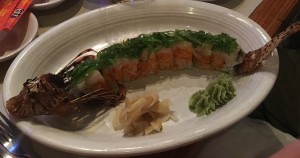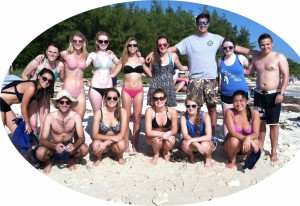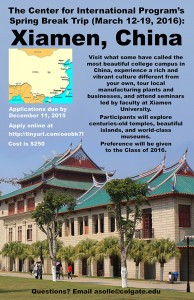Dolphin Lab Journal Part 2!
Day 6: Friday!
Today was our last day of Basic Dolphin Lab, marking the halfway point of our time at the Dolphin Research Center. We started the day off with a Farewell to Friends session with the dolphins, in which we got to do backrubs and ask the dolphins for one final signal. Some of the behaviors we asked for were raspberries (the dolphins make a raspberry noise), scuba impression (the dolphins blow bubbles underwater), bob (the dolphins bob up and down), speed runs, shark (the dolphins imitate a shark) and others. Then the group split up – most people went to Bahia Honda National Park to snorkel and spend time on the beach, while four students – Lacey, Zach, Maia and Anna – stayed behind at the DRC to watch and participate the program offered for the Wounded Warriors, who had just the 2016 Soldier Ride, a bicycle trip through the Florida Keys. For information about the Soldier Ride and an interview about the Dolphin Encounter, check out this link: http://www.washingtontimes.com/news/2016/jan/10/wounded-veterans-participate-in-ride-across-florid/)
The students who stayed behind at the Dolphin Research Center got to watch a wide variety of training and enrichment sessions with the dolphins and sea lions before the Wounded Warriors arrived. One of the most interesting sessions was the enrichment session, in which the trainers had no food, and they simply sat on the docks and played with the dolphins who chose to come over to them. Several dolphins chose to take part in this. Both Diva and summer played with balls for several minutes, Diva kept bringing the ball back to the trainer in a game of fetch, while Summer swam away with it and pushed it under the water so that it would fly into the air. Diva also played with a squirt gun; the trainer would squirt water into the lagoon from the gun, and Diva tried to catch the stream of water in her mouth. Finally, Tursi took a scarf from the trainer, and she swam around with it on her fin for several minutes. It was very interesting to see that the dolphins chose to interact with the trainers even when they had no food motivation, and they really seemed to be enjoying the games they played.
In the afternoon, Anna, Maia, Zach and Lacey got to participate in the Heroes’ Welcome for the veterans, where all the DRC staff and guests lined the entrance way and formed a channel that led to the front lagoon (where the encounter sessions would be held). It was incredible to hear that almost all of the veterans were saying thank you to everyone as they walked by – when they really should be the ones being thanked. It was also amazing to see their reactions as they interacted with the dolphins. For some of them, their first interaction with the dolphins was the first time that we saw them smile. The dolphins were very well behaved – they did dorsal tows for the veterans who could hold on, and for those who could not, the dolphins pushed them around in their water by their feet. Additionally, they did many imitations with the veterans, such as bobs, spitting water, dancing, laughing, and more. Tursi and Molly both showed off for the large crowd, doing a full frontal flip out of the water (to see Tursi’s flip, see this link https://www.youtube.com/watch?v=VqN5GY2zH-c). All in all, it was a very special afternoon, and it was touching to see how much the veterans enjoyed spending time with the dolphins. We also got another chance to talk to Mandy, who came up to us and told us more about how dolphins really helped him in his recovery from PTSD. He told us that the impact the dolphins had was not something that could be easily described, but rather see for ourselves, and he was right.
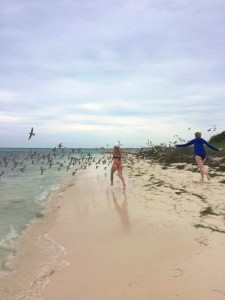
Kat and Elly running with the birds at Bahia Honda
Meanwhile, the other Colgate students had a beach day at Bahia Honda, a state park in Big Pine Key. It was definitely not the best beach day (colder, windy, and rainy) but we still enjoyed our day off! Trevor snorkeled and saw a stingray, cowfish, juvenile sergeant majors, and yellow snapper. The rest of us took walks on the beach looking for shells, and walked on the huge sandbar in the ocean. Our day was uneventful, but very relaxing after the week of Dolphin Lab! After the day at the beach and with the Wounded Warriors, we went to a restaurant that served lionfish sushi, specifically for the lionfish. Lionfish are native to the Indian Ocean and Pacific Ocean, but are an invasive species to the Atlantic and Gulf of Mexico. Lionfish are currently posing a huge problem in these places. They are extremely fast breeders, and in their new homes they have no natural predators, instead outcompeting native fish species for prey and are causing severe population decline in native species, as they eat EVERYTHING. Lionfish seem like an unsafe fish to handle and consume due to their venomous spines, but if they are prepared correctly, they are perfectly safe to eat, and quite delicious, as we have tasted! Lionfish are essentially destroying the ecosystems of the Atlantic and Gulf of Mexico, and creating a market for them would be both insanely helpful and tasty. Moral of the story: EAT LIONFISH and you will be helping to save the world.
Below are a picture of lionfish in the wild (top) and the lionfish sushi that students ate (bottom)
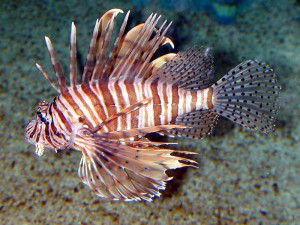
Image from: http://www.aquariumcreationsonline.net/Lion_saltwaterfish.html
